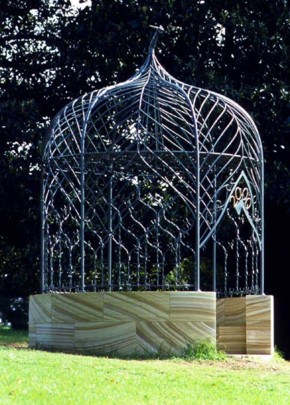The Holocaust
Often the history, the story we tell, is as important as the events that lie behind it. Take the disputed Holocaust as an example. The Jewish Board of Deputies says the number killed was six million; holocaust deniers say that far less were killed. What can we make of this? Unless a lot of film and documented eyewitness accounts have been doctored, I'm reasonably sure it was a pretty big number. Does the claimed number differ from the actual events? If so does it matter?
The fact itself, as it really happened, changed the future. Many people died; many more were never born; paintings were never made; music was never written; inventions were not conceived; discoveries not made; businesses never started. Almost everyone alive today would never have been born if it had not happened just so. Why then is the historical version, the story, so controversial? It's one of few stories, perhaps the only one remaining, that in some countries has legal sanctions attached if people doubt it and say so.
It's because the story itself, independent of the event it describes, has utility.
In the 1970's I met a widow who had a property in Castle Hill NSW. In 1945 she said, she had fled from Ravensbrück concentration camp, with the other prisoners; together with their German guards who were also starving; ahead of the advancing Russian Army. English was not her first language but I understood that she was a Polish political prisoner accused of being an anti-German activist; but the prisoners and their guards were more scared of the Russians than of the Germans. On Wikipedia this is described as a 'death march'.
She was not Jewish and was not sympathetic to Jews. She confirmed that the Jewish prisoners were very badly treated and many/most died. She was, she said, not aware of the extermination ovens. When they got to apparent safety the allied troops wanting to help gave them food from ration packs. This proved to be too rich and many of them died as a result of this kindness.
Her husband had fought with the Russians and for his pains was sent to a forced labour camp, from which he somehow escaped. Reputedly the Russians massacred numerous troops who had previously fought with them. For the remainder of their lives they lived in fear of the 'authorities' but most particularly of the Russians in the context of the 'cold war'.
As a result of the actual events that took place you and I are here. We would not be had not the events that led to these deaths, and the millions of others in two world wars, been exactly as they were. I explain why in more detail elsewhere on this website.
But over and above what actually took place are the stories we tell about those events. In the case of the Holocaust they are still told as an apparent justification for continuing to settle on the land of people who were totally remote from the actual events; and of the stories told about them.

